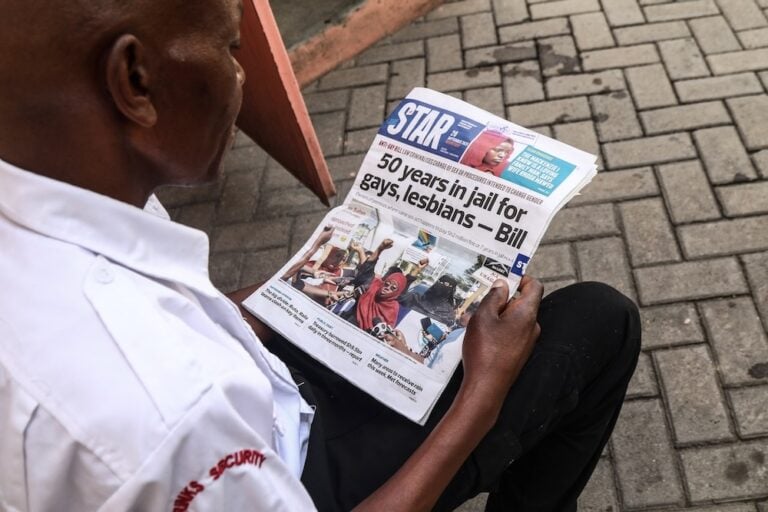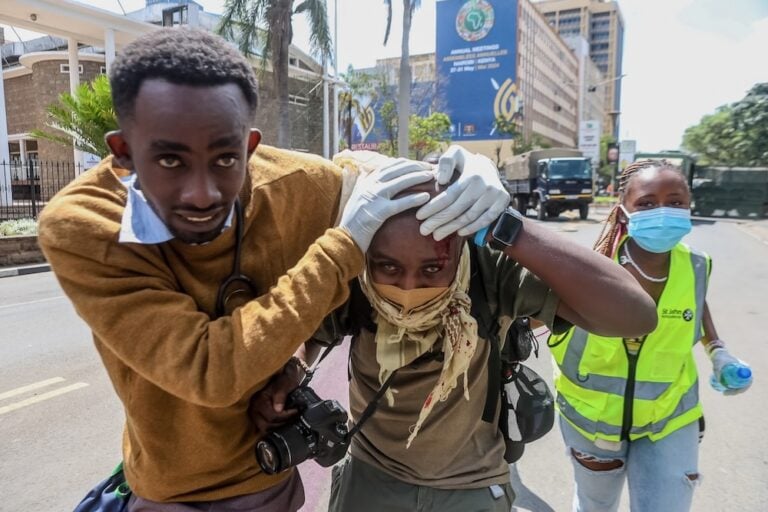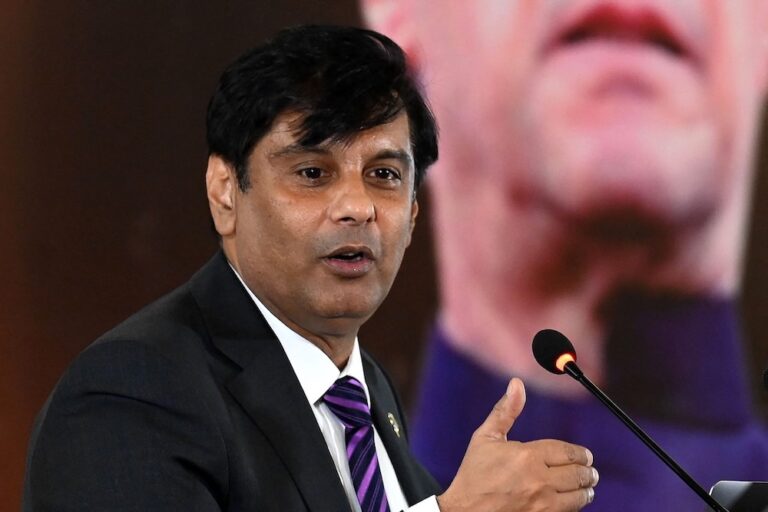(NDIMA/IFEX) – Royal Media Services, the parent company of the newly-launched broadcasting station Citizen Radio licence to operate a radio station was cancelled by the Communications Commission of Kenya (CCK) last week, has gone to court seeking to have the CCK and its parent company, Telkom Kenya, ordered to reconnect power and restore the frequencies […]
(NDIMA/IFEX) – Royal Media Services, the parent company of the newly-launched broadcasting station Citizen Radio licence to operate a radio station was cancelled by the Communications Commission of Kenya (CCK) last week, has gone to court seeking to have the CCK and its parent company, Telkom Kenya, ordered to reconnect power and restore the frequencies to its transmitters.
On 28 January 2000, the company’s lawyer, Gibson Kamu Kuria, urged the court to declare that the cancellation of their frequencies was unconstitutional. Lawyers appearing for Telkom and the CCK, Kenneth Kiplagat and P.B. Jirani, urged the judge to allow him to make his submissions in the temporary injunction application.
On Monday 31 January, the judge will make a ruling on the matter. Kuria maintains that the cancellation of the licence was in contempt of court, because a suit between Telkom and Royal Media was still pending.
In the Citizen Radio law suit, the broadcasting company is seeking a mandatory injunction, requiring the two defendants to reconnect electricity to its equipment. The company further wants the court to issue a permanent injunction restraining Telkom from breaching the terms of an October 1999 agreement in which Telkom was to allow Royal Media the use of its transmission tower.
BACKGROUND: Broadcasting licences withdrawn
On 25 January, the newly-launched Citizen radio was ordered to stop broadcasting after the recently-established CCK cancelled the radio station’s frequency licences. The radio was being broadcast in four parts of the country: Nyambene, Rongai, Nyahururu and Nanyuki.
The CCK accused Royal Media of illegally shifting one of its transmitters from the authorised location, and of defaulting on a payment of 10.2 million Kenya shillings (approx. US$145,798) for the frequencies in 1998 and 1999. The CCK also accused the media firm of using unauthorised equipment. “We are still watching them and the TV station could also be switched off,” said CCK Public Relations Manager Mutua Muthusi.
Royal Media was one of the fist privately run media stations to be allowed to broadcast outside Nairobi. The station’s owner, S. K. Macharia, fought a protracted legal battle to be allocated broadcast frequencies to compete with the government-controlled Kenya Broadcasting Corporation (KBC).
Karanja Njoroge, General Manager of Royal Media, insisted that the radio and TV stations were operating normally. “We are on air as normal and everything is okay,” said Njoroge.
Muthusi said frequencies could not be partially withdrawn, and the CCK had to cancel Royal Media’s entire allocation.
A CCK letter to Royal Media said, “As brought to your attention and which you admitted, you have installed transmitters and associated accessories at various sites, without obtaining type approve certificates of your equipment as required by Act. This is therefore to inform you that your frequency licences are hereby withdrawn. Consequently you should cease further broadcasting on all of the assigned frequencies.”
The letter, signed by an individual named Odongo, warns Royal Media that criminal proceedings would be brought against the company for breaching the Kenya Communications Act.


